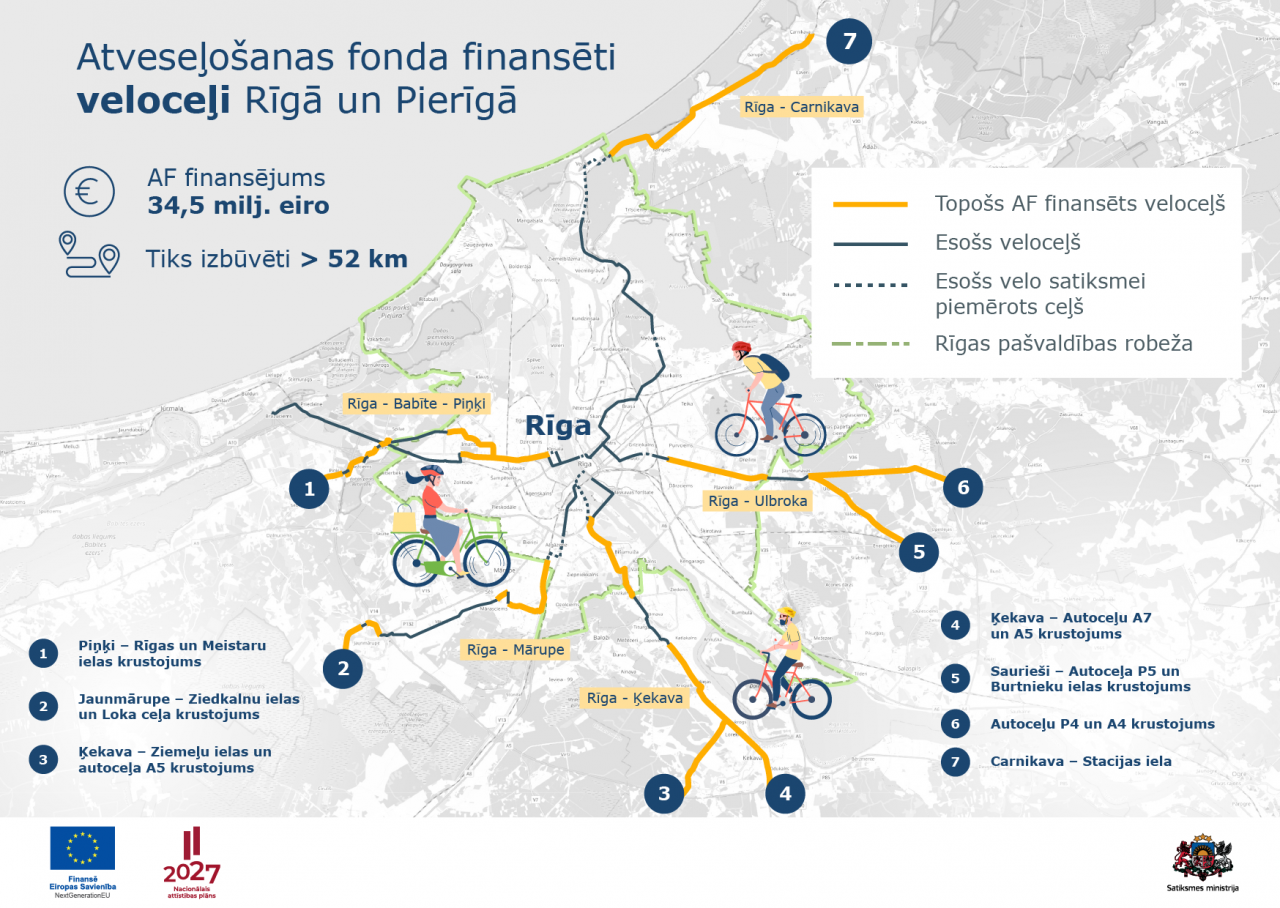Cohesion Fund 10 Years Investments in Latvia with positive sign
In an international Cohesion Fund programming period 2000 – 2006 closing conference “Cohesion Fund 10 Years Investments in Latvia”, organised by the Ministry of Finance on November 25, participants – project implementers from all Latvia, sector associations, Ministries of Finance, Transport and Environment, as well as representatives of Estonia, Lithuania and European Commission, summarised results and benefits of Cohesion Fund environment and transport infrastructure projects in the programming period 2000 – 2006.
The conference was opened by the Minister of Finance Andris Vilks and representative of the European Commission DG Regional Policy Alain Roggeri. Deputy State Secretary of the Ministry of Finance on EU Structural Funds and Cohesion Fund Issues Aleksandrs Antonovs gave a summary of CH 10 Years Investments in Latvia.
In all three Baltic States implementation of Cohesion Fund projects was a great challenge and gave numerous benefits to the population, for example, in Latvia 160 km of roads were reconstructed or built, 9 waste management polygons were made and 800 separated waste collection points were established, thus negative impact of dumps on the environment was decreased, new sewerage and water pipeline networks were constructed etc. Independent evaluators from the company DEA Baltika gave an assessment of Cohesion Fund project results and social economic benefits. Full text of the report after it is confirmed will be available on the website of EU funds in section “EU Funds Evaluation”.
For participants it was worth hearing about the experience of Estonian and Lithuanian colleagues because the problems and challenges mentioned by the neighbours were similar also in Latvia – lack of project management experience 10 years ago when implementation of large-scale projects started, rapid price increase in the construction sector before the economic crisis which increased project costs even 4 times in the beginning of 2000, lack of experience in preparation of complex procurement documentation, delays in project implementation due to limited capacity of construction sector and limited availability of experts with specific knowledge, as well as due to complex procurements etc.
In total in the programming period 2000 – 2006 Latvia had 710 million euro available which were invested in the economic development, particularly in transport infrastructure, water management and waste management sectors.

Joint photo: [from the left] Alminas Mačiulis, Ministry of Transport of Lithuania; Inesis Kiskis, Ministry of Environment of Lithuania; Aldo Valba, Ministry of Finance of Estonia; Ausra Nausediene, Ministry of Finance of Lithuania; Diāna Rancāne, Ministry of Finance, Director of EU Funds Monitoring Department; Andulis Židkovs, Chairman of the Board of JSC Passenger Train (till 2009, Deputy State Secretary of the Ministry of Transport); Ilze Aleksandroviča, Ministry of Transport, Director of Investment Department; Aleksandrs Antonovs, Deputy State Secretary of the Ministry of Finance on EU Structural Funds and Cohesion Fund Issues; Vija Gēme, Deputy State Secretary of the Ministry of Environment; Alain Roggeri, European Commission DG Regional Policy

Presidium: [from the left] Alain Roggeri, European Commission DG Regional Policy; Vija Gēme, Deputy State Secretary of the Ministry of Environment; Aleksandrs Antonovs, Deputy State Secretary of the Ministry of Finance on EU Structural Funds and Cohesion Fund Issues; Ilze Aleksandroviča, Ministry of Transport, Director of Investment Department; Diāna Rancāne, Ministry of Finance, Director of EU Funds Monitoring Department

Aleksandrs Antonovs, Deputy State Secretary of the Ministry of Finance on EU Structural Funds and Cohesion Fund Issues

Conference was opened by the Minister of Finance Andris Vilks

